Didn’t we shift from coal to oil and gas ? If so, it means that many countries have taken the habit of using less and less coal, and some might even have done it because coal production could not grow any more. Actually, coal – unfortunately for the climate – is not at all an energy of the past, and countries that have passed their peak are not that many. Still, we can find some, almost all European
Europe
In Europe, which has been the first continent to extract coal on a massive scale, a number of countries have passed their peak.
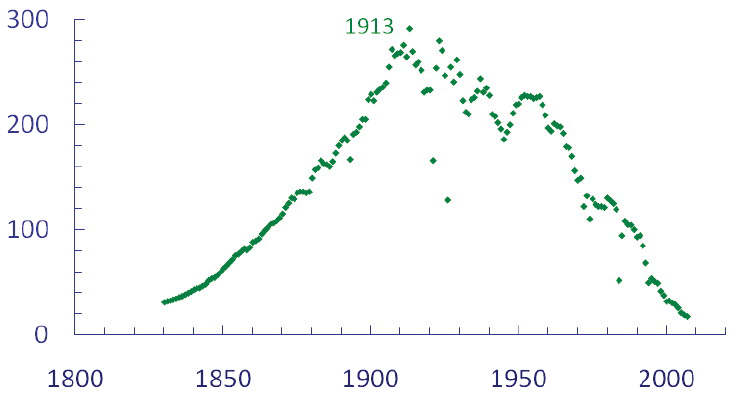
Coal production in the UK, in million tonnes.
Peak in 1913.
Source : Dave Rutledge, Caltech, 2010
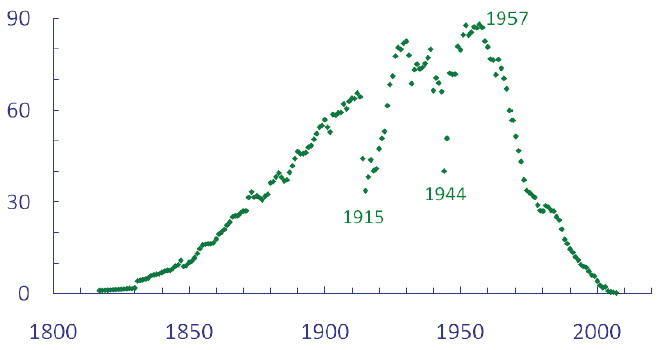
Coal production for France and Belgium, in million tonnes.
Peak in 1957.
Source : Dave Rutledge, Caltech, 2010
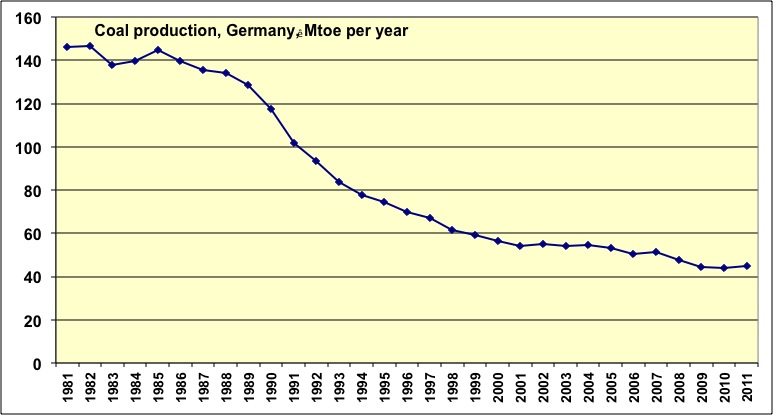
Coal production in Germany, in million tonnes oil equivalent.
The peak seems to be well behind !
Source : BP statistical Review, 2012
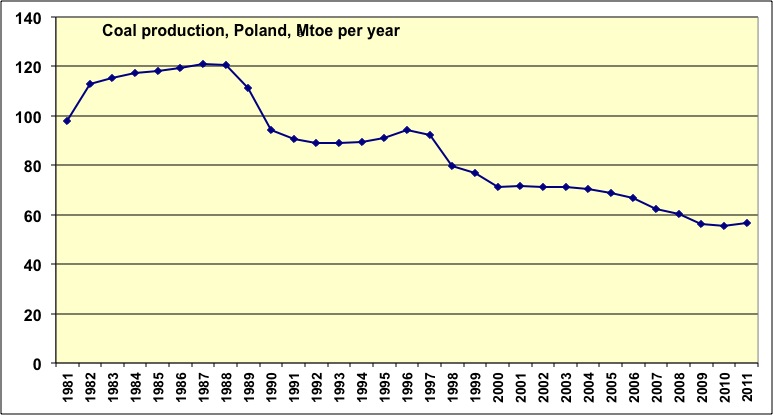
Coal production in Poland, in million tonnes oil equivalent.
The peak happened in 1988.
Source : BP statistical Review, 2012
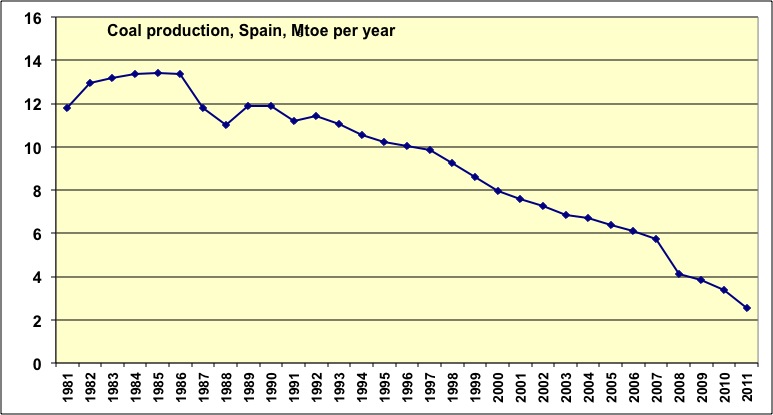
Coal production in Spain, in million tonnes oil equivalent.
Peak in 1986.
Source : BP statistical Review, 2012
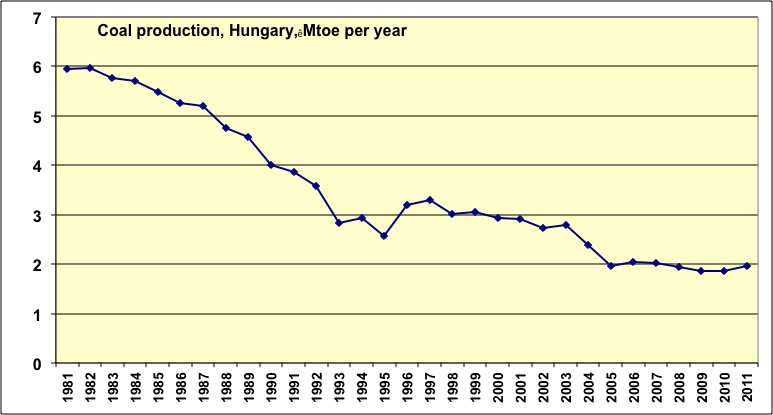
Coal production in Hungary, in million tonnes oil equivalent.
Source : BP statistical Review, 2012
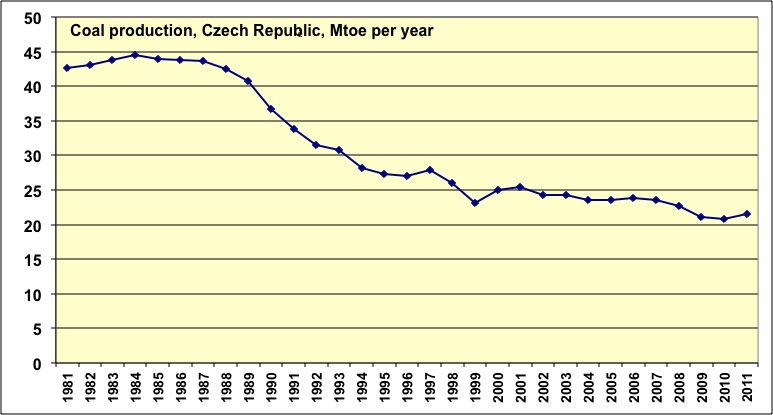
Coal production in the Czech Republic, in million tonnes oil equivalent.
The peak is at least 1984.
Source : BP statistical Review, 2012
Globally, coal is declining in Europe, which is producing a little less than 60% of its consumption.
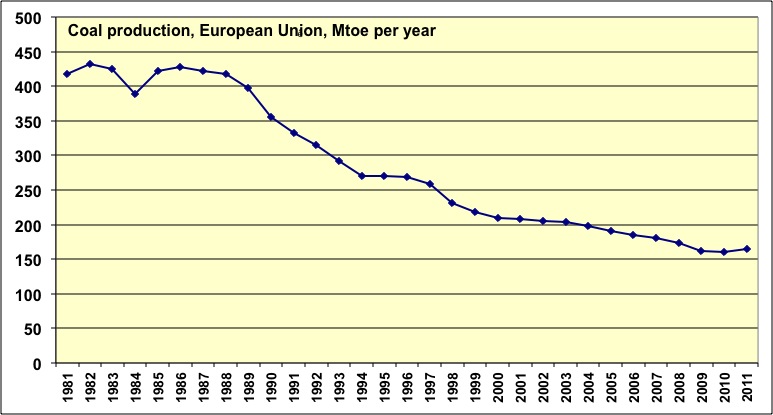
Coal production in the European Union, in million tonnes oil equivalent.
Source : BP Statistical Review, 2012
Former Soviet Union
The countries of the Former Soviet Union show an interesting example of countries that passed a first peak not for geological reasons, but because of the recession that happened in these countries after the fall of the Berlin Wall, that triggered a decrease of the GDP up to 50% in some countries. As energy and GDP are closely linked, energy consumption decreased also. And as coal is mainly a domestic energy, its production fell accordingly.
The zone has nevertheless very important reserves, that leave the possibility of a new peak above the previous one. History will tell !
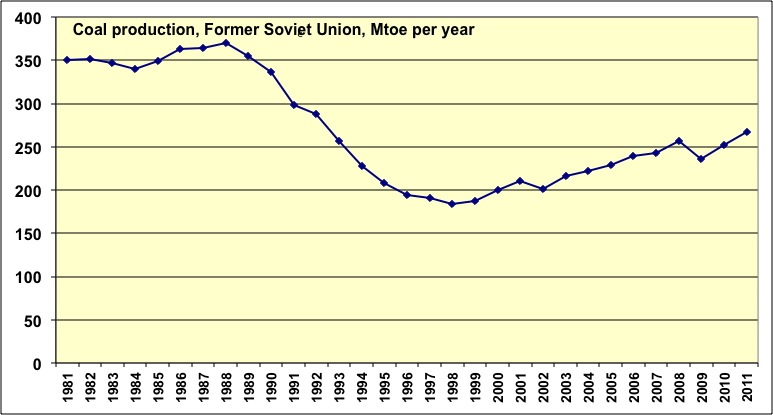
Coal production of the former Soviet Union, in million tonnes oil equivalent (mostly Russia+Ukraine+Kazakhstan).
Source : BP Statistical Review, 2012
Far East
In this zone, Japan and Korea have passed their peak.
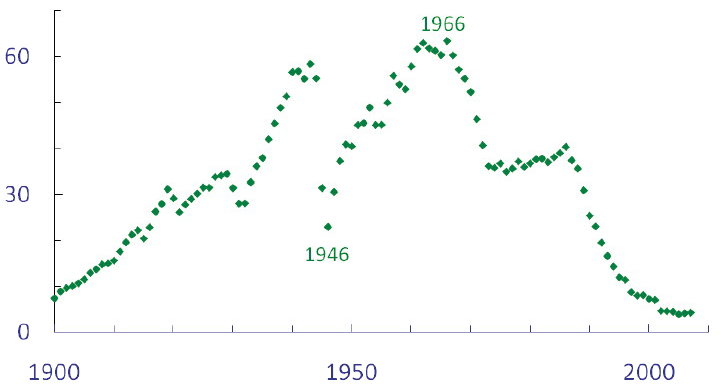
Coal production for Japan and Korea combined, in million tonnes oil equivalent.
Peak in 1966.
Source : Dave Rutledge, Caltech, 2010
But in the same zone there is also China, which produces alone half of the world coal, and has a steadily growing production for the time being.
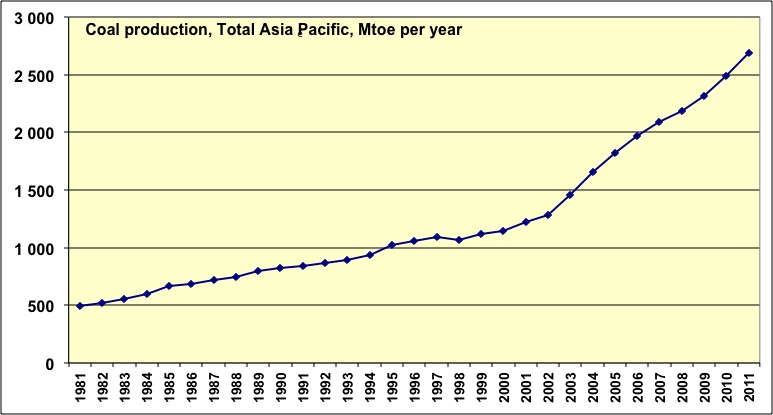
Coal production for the zone Asia-Pacific, in million tonnes oil equivalent.
Source : BP Statistical Review, 2012
Middle East
Middle East doesn’t have coal. But they have all the oil, so be it !
Africa
In this zone, there is only one significant producer: South Africa, with 99% of the total, and has not passed its peak.
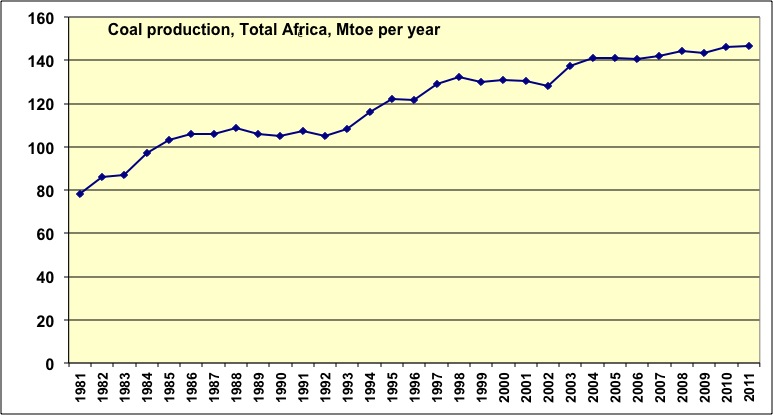
Coal production for Africa, in million tonnes oil equivalent.
Source : BP Statistical Review, 2012
Southern America
This zone is dominated by Colombia (90% of the production) which has not passed its peak.
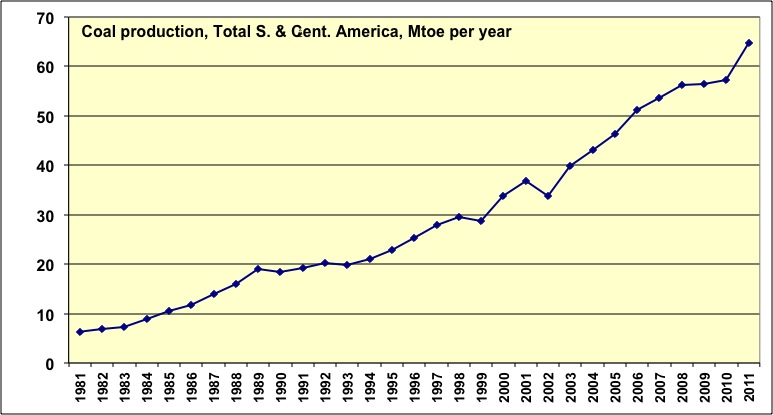
Coal production for Latin America (Mexico excluded), in million tonnes oil equivalent.
Source : BP Statistical Review, 2012
Northern America
The US represent 93% of the production of the zone. They are on a plateau, but they have the first reserves in the world, so it is difficult to know how far they are from a peak. Such an event nevertheless happened for some types of coal and some regions.
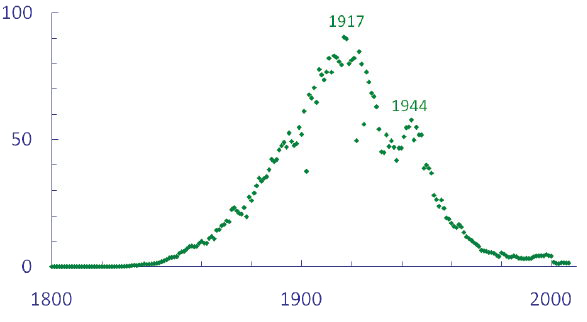
Anthracite production in Pennsylvania, in million tonnes.
Peak in 1917.
Source : Dave Rutledge, Caltech, 2010
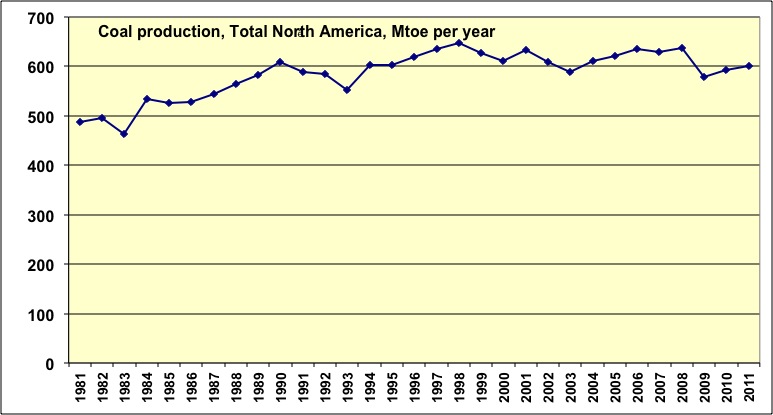
Coal production for Northern America (Mexico included), in million tonnes oil equivalent.
Source : BP Statistical Review, 2012
At the world level, the peak in coal production could happen anywhere between 2020 and 2150, and most authors put this event in the second half of the 21st century. But two conclusions can be kept in mind :
- to avoid a very unpleasant climate change, peak coal should happen (voluntarily in this case) in the 5 to 10 coming years,
- in whichever case it will happen some day anyway. If it happens because of shortages it will be a local or regional event more than a planetary one.